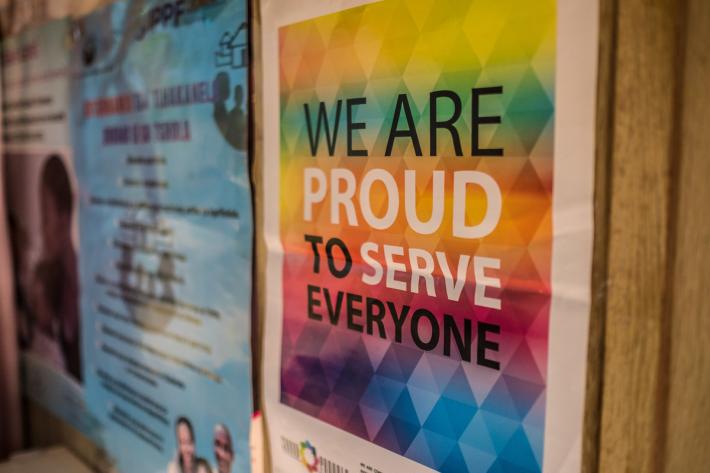
New data from the International Planned Parenthood Federation (IPPF) reveals how opponents of sexual and reproductive health and rights (SRHR) around the world are attempting to use the COVID-19 pandemic as cover to try to push back against progressive reforms.
The latest IPPF survey of its worldwide membership on COVID-19 reveals that opponents of SRHR are employing a range of tactics to try to undermine sexual and reproductive rights.
This includes spreading misinformation (18 members), framing the pandemic as an opportunity to reinforce traditional values (15), increasing discrimination against vulnerable populations (10), pushing for regressive measures against SRHR (eight) and blocking progressive debates on SRHR laws and policies (seven).
One member reported social media platforms being used to spread a message that “COVID-19 is the answer from God on abortion.”
Another reported opposition attempting to prevent the passage of a bill covering violence against women through parliament, claiming the pandemic was a “Dictate from the West” and passage of the bill contrary to Sharia Law.
The spreading of false information includes:
- The distribution of fake leaflets with health ministry logos among vulnerable groups, stating they are not at risk from COVID-19.
- The use of social media messages to claim safe abortion services will infect women with COVID-19.
- The spread of anti-contraception messages mixed in with disinformation about COVID-19
Attempts to block or slow legislature and policies include limiting progress in the passage of a bill to abolish anti-abortion laws and attempts to exclude abortion from national guidelines on sexual and reproductive care during the pandemic.
One member reported that political opponents of sexual and reproductive rights were using “all communication and legislative spaces to validate discourses that position women in domestic tasks” by claiming: “the pandemic has allowed us to reassess the important role that women play in their homes for families.”
IPPF members are resisting this opposition and defending laws and policies that support SRHR. 61 members report working with governments to ensure continuation of sexual and reproductive health provision service provision and 31 say they have contributed to policies or changes in legislation in support or defence of SRHR and gender equality since January 2020.
59 members reported advocating to ensure the continuation of access to sexual and reproductive healthcare for under-served and vulnerable groups during the pandemic and 54 members said they were advocating for ways to combat sexual and gender-based violence, which threatens more women and girls in lockdown.
The pandemic continues to have a huge impact on the delivery of sexual and reproductive healthcare around the world. 52 members rated the reduction of their capacity to deliver services as “critical or severe” – meaning at least 50 percent of their operations had been reduced or impacted. Only two members, less than one per cent, in countries with small numbers of COVID-19 infections, reported no impact on them.
Other headlines include:
- 19 members report having to dismiss or suspend staff.
- 32 members say they are facing stockouts of short-acting contraceptives such as the oral contraceptives, emergency contraception and condoms.
- 26 members report stockouts of long-acting contraception such as intrauterine devices and implants.
- 5,440 service delivery points across all IPPF members are closed, 11 per cent of the total number of all IPPF service delivery points.
- 238 static clinics, which provide a wide range of services, remain closed. 546 were reported closed in IPPF’s March survey of members.
- Only eight members are still able to delivery comprehensive sexuality education in schools, even with social distancing.
- 67 members are now delivering comprehensive sexuality education through digital and social platforms.
IPPF’s Director General Dr Alvaro Bermejo said:
“This data shows how hard IPPF members are working to find ways to overcome the impact of COVID-19, but also how severe the impact remains.
Reopening hundreds of static clinics is a huge achievement, as is the change by members to deliver vitally needs comprehensive sexuality education through digital and social channels when many schools remain closed.
However innovative IPPF members are, they cannot hope to offset the effect of this pandemic without additional support. This can only be addressed with the effective supply of commodities, to ensure stockouts are avoided and access to services for all IPPF clients is continued.
Support from governments is also critical, in particular in responding to the opposition who are trying to use the cover of COVID-19 to chip away at sexual and reproductive rights. Extremist views which seek to rob women and girls of their human rights and undermine their ability to access vital sexual and reproductive healthcare must be resisted.
Many governments do already take a positive stand in defence of women and girls and have gone further during this pandemic to support access to sexual and reproductive healthcare, such as access to telemedicine. IPPF calls on all governments to adopt such sensible and practical measures to make it easier for women and girls to get the care they need so badly in these difficult times, and to ignore the voices of coercive opponents who seek to impose their radical views on others.”